Do Cat Scratches Leave Scars?
There’s nothing worse than having your beloved cat scratch you. Not only does it hurt, but it also leaves a nasty scar.
But do cat scratches leave scars? Yes, it can; but not all the time. It depends on how deep the scratch is and how well your skin heals. When the scratch is surface level, then it’s unlikely will leave a scar. But if the scratch is deep, it’s more likely to leave a scar. However, with time it will fade away!
However, are you accidentally scratched by your falling friend? In case the answer is yes, then you are in the right place. This blog will guide you through all these topics to soothe your cat’s scar. So, let’s dive in.
Related Blogs:
How To Deal/Soothe/heal With Cat Scratches?
While some scratches are nothing more than an annoyance, others can be quite painful. In severe cases, cat scratches can even lead to infection. So, what can you do to deal with cat scratches?
Here are a few tips:
Clean scratches: Clean the area with soap and water. This will help remove any dirt or debris that may be embedded in the wound.
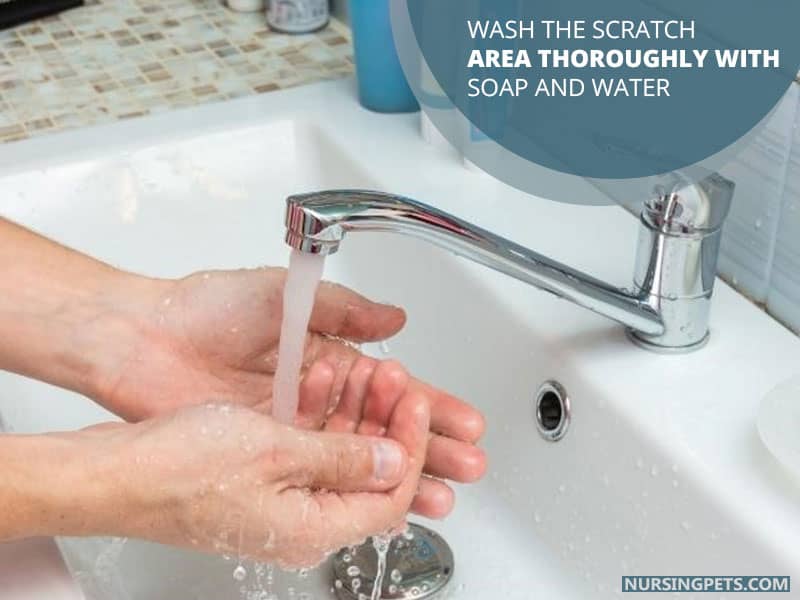
Use antibiotic: Apply a thin layer of petroleum jelly or antibiotic ointment to prevent scratch infection.
Apply bandage: Cover the area with a bandage. This will protect the wound and keep it clean.
Give a break: When your cat is scratching you more than usual, it may be because they’re stressed out. Try to provide them with a calm environment and give them plenty of attention.

Trim your cat’s nails: If your cat’s nails are sharp, they can do more damage when scratched. Regular nail trimmings can prevent this.
Seek professional help: Whenever you’re concerned about your cat’s scratching behavior, it’s best to seek professional help. A veterinarian or animal behaviorist can offer advice on how to deal with the problem.
How Long Do Cat Scratches Take To Heal?
Just as with people, the healing rate varies and depends on several factors, including the depth and severity of the wound, the overall health condition, and whether or not the wound becomes infected.
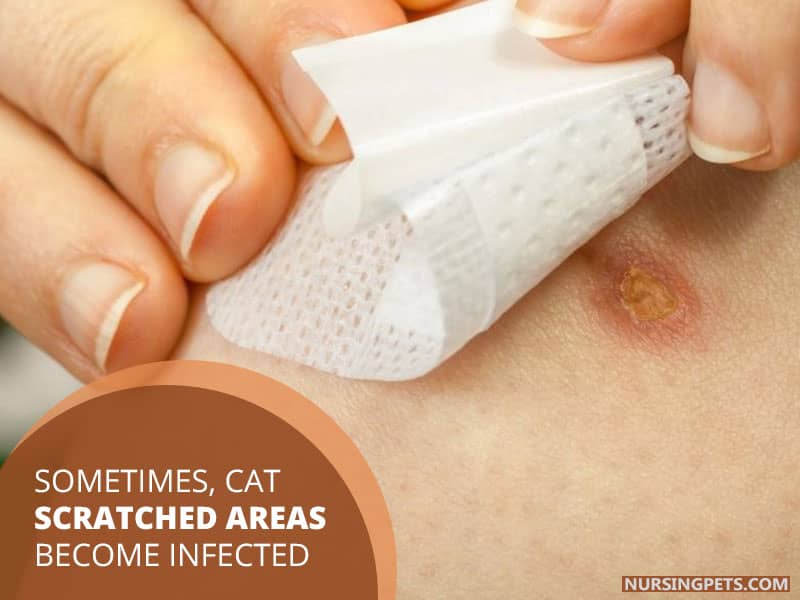
In general, most superficial scratches will heal within a week or two. Deeper wounds may take longer, and if you have a health condition that slows down the healing process, such as diabetes, the wound may take even longer to heal.
In case you’re concerned about your cat’s scratch not healing properly or worsening, it’s always best to err on the side of caution and go to the doctor for a check-up.
Are Cat Scratches Dangerous?
A cat scratch itself is not necessarily dangerous, but it can become infected if the cat has bacteria on its claws. And, in rare cases, a cat scratch can transmit a disease called cat scratch fever.
Now, let’s take a closer look at each of these potential dangers that can come from your cat’s scratch:
Infection
The most common danger of a cat scratch is infection. This can happen if the cat has bacteria on its claws, which is not uncommon. When the bacteria enter the skin through the scratch, it can cause an infection.
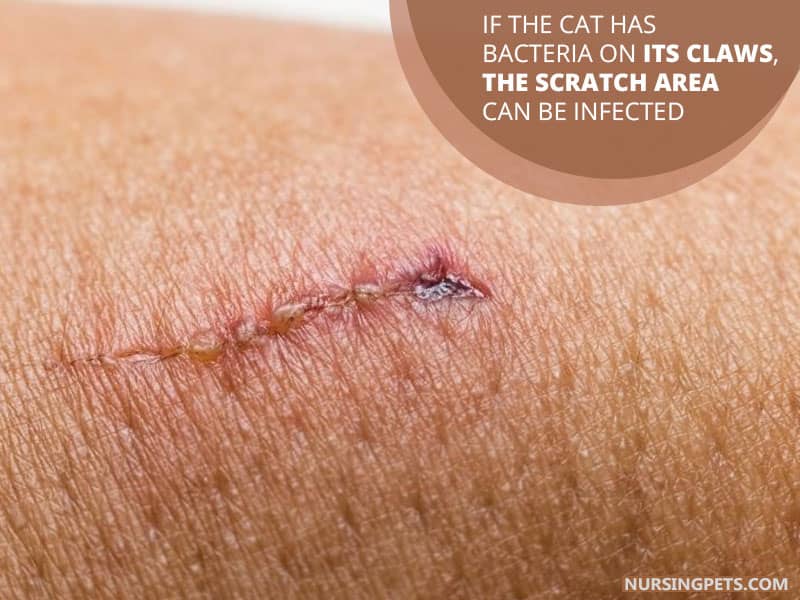
Symptoms of infection include redness, swelling, pain, and pus. If you notice any of these symptoms, it’s important to see a doctor right away. If left untreated, an infection can spread and become serious.
Cat Scratch Fever
In rare cases, a cat scratch can transmit a disease called cat scratch fever. This disease is caused by a bacterium called Bartonella henselae, which is found in the saliva of some cats.
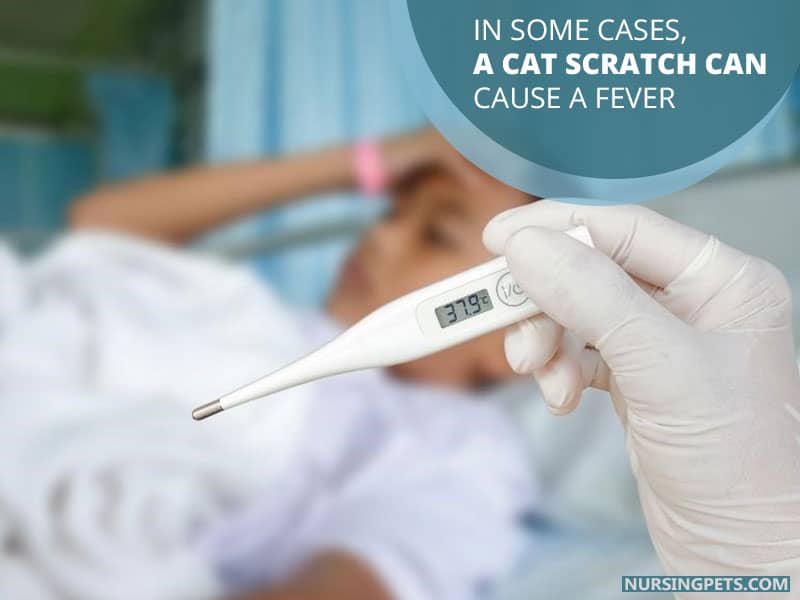
Symptoms of cat scratch fever include fever, headache, fatigue, and a swollen lymph node. In some cases, the lymph nodes may become so swollen that they rupture.
Do Cat Scratches Hurt?
Most people think that cat scratches only hurt the surface of the skin, but the truth is that they can cause serious damage. The tips of a cat’s claws are very sharp and can easily pierce through the skin.
Some cats also have bacteria on them that can cause infections.
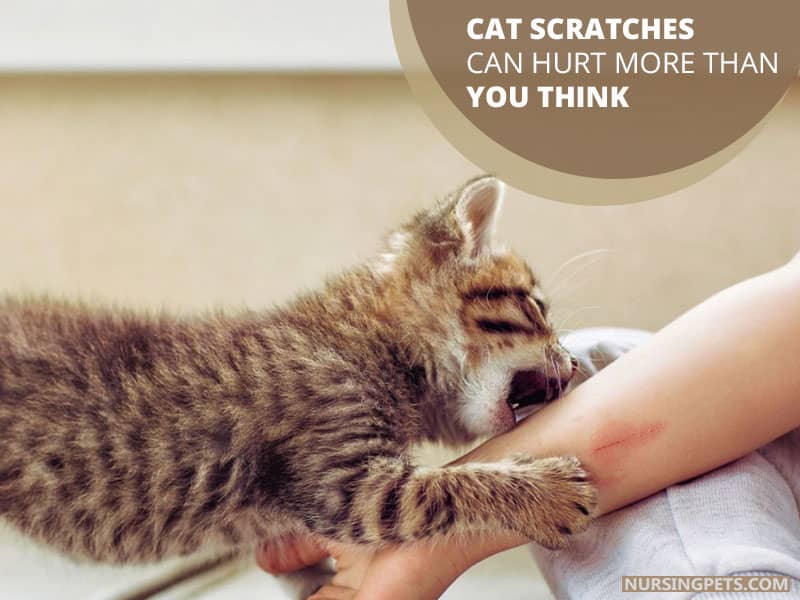
If you’re scratched by a cat, it’s important to clean the wound right away. You should also see a doctor if the scratch is deep or if you have any concerns about infection.
What Happens If You Get Too Many Cat Scratches?
Sometimes you’ve probably been scratched by your feline friend. Usually, these scratches are nothing more than a minor annoyance. But what happens if you get too many cat scratches?
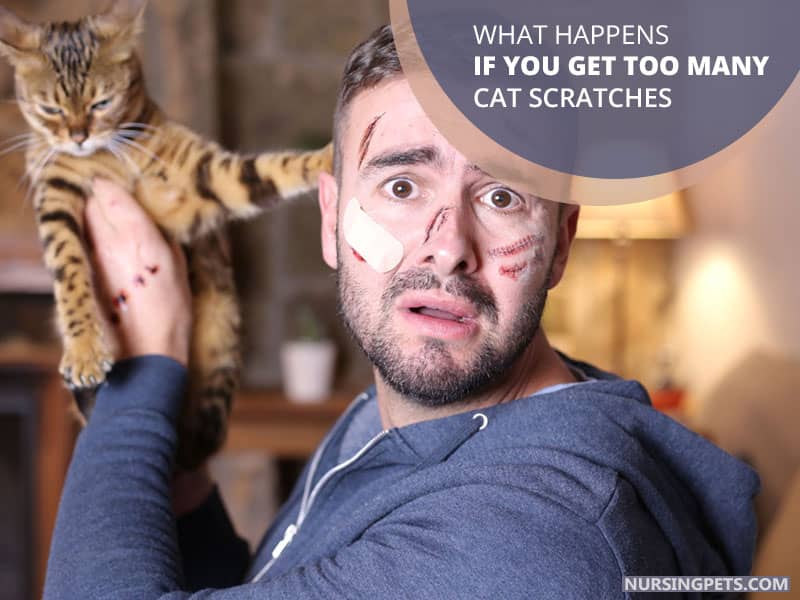
Cat scratches can range from being a nuisance to being dangerous. If the scratches are deep enough, they can cause bleeding and even infection. In rare cases, cat scratches have been known to transmit diseases like cat scratch fever.
Therefore, too many scratches can be dangerous if they are deep. However, you need to be careful even with one or two, as they can cause infection or fever.
Do Cat Scratch Scars Go Away?
Most cat scratches will go away on their own within a few days. However, some may take longer to heal or may become infected. If you have a cat scratch that does not seem to be healing, or if it is accompanied by redness, swelling, or pus, you should see your doctor.
What Are Some Home Remedies For Cat Scratches?

A few home remedies can help soothe and heal cat scratches. These include:
- Apply a cool compress to the area.
- Wash the area with warm water and soap. This will help remove any dirt and bacteria from the wound.
- Try to use a mixture of honey and lemon juice or a paste made from baking soda and water.
- You can also try using a small amount of aloe vera gel. This plant has natural healing properties that can help soothe the skin.
- Applying a small amount of olive oil or coconut oil to the affected area may also be helpful.
- Keeping the wound covered with a sterile bandage.

In case the scratch is deep or seems to be getting infected, it’s important to see a doctor as soon as possible.
How To Get Rid Of Cat Scratch Scars?
Cat scratch scars can be deep and painful and can take weeks or even months to heal. If you are looking for ways to get rid of your cat scratch scars, there are a few things you can do.
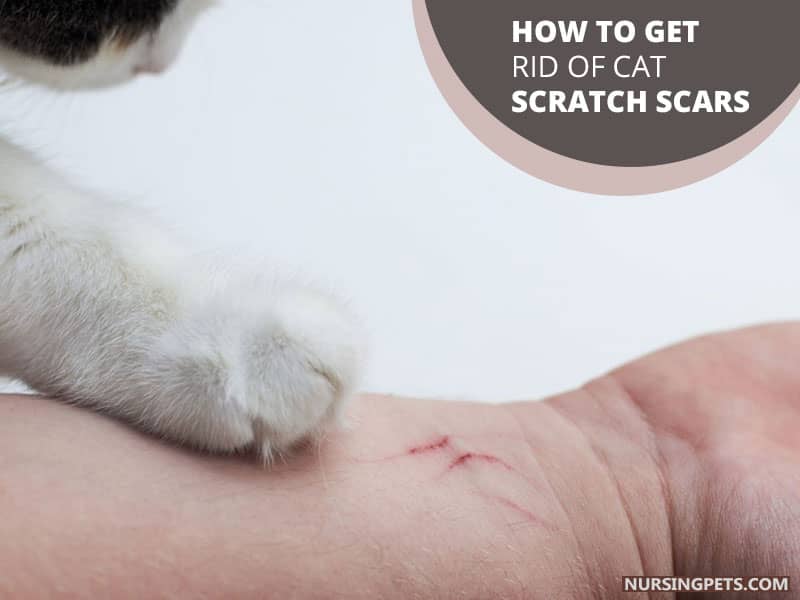
- Start by washing the area with soap and water. This will help to remove any dirt and debris that may be clogging up the pores.
- Apply a topical scar treatment to the area. This can help to moisturize the skin and reduce the appearance of the scar.
- Use sunscreen when you go outside. This will help to protect the scar from further damage from the sun.
- Be patient. It can take time for the scar to heal completely. Don’t get discouraged if it doesn’t seem to be improving right away.
When the scar is particularly severe, then you may need to consult a dermatologist to discuss other options, such as laser treatment.
How To Get Rid Of Cat Scratch Scars On Face?
Have ever had a cat scratch your face? You know how difficult it can be to get rid of the scars, even when they do heal, you’re often left with a pretty noticeable scar. So what can you do to get rid of those pesky cat scratch scars?
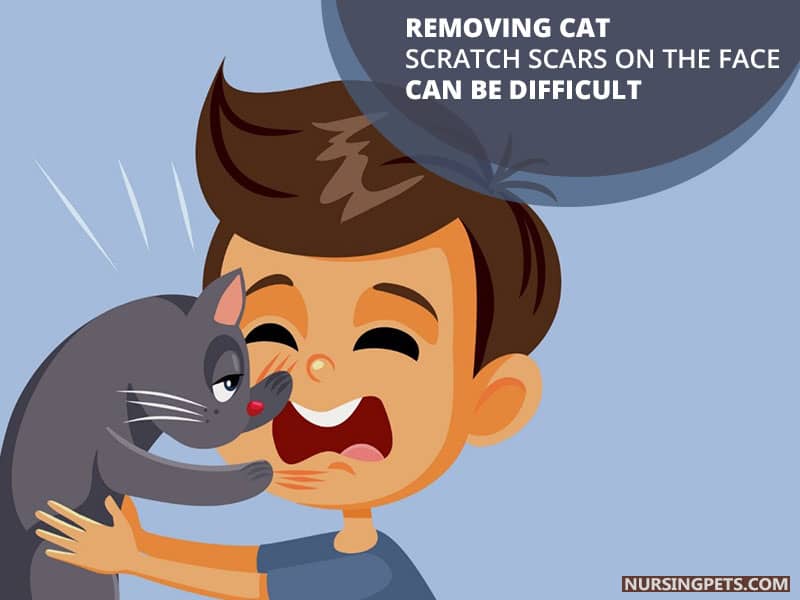
Here are a few tips on how to get rid of cat scratch scars on your face:
Scar cream: There are several scar creams on the market that can help to fade the appearance of scars. Be sure to read the instructions carefully and apply the cream as directed.
Silicone gel: Use a silicone gel sheet to help flatten the scars. You can find these products at your local drugstore or online.
Vitamin E oil: Vitamin E is known for its healing properties and can help to fade scars. Simply break open a vitamin E capsule and apply the oil to the scarred area.
Aloe vera: Aloe vera is another natural remedy that can help to fade scars. Simply apply the gel from a fresh aloe vera leaf to the scarred area several times a day.
Lemon juice: Lemon juice has bleaching properties that can help to fade scars. Apply fresh lemon juice to the scarred area several times a day.
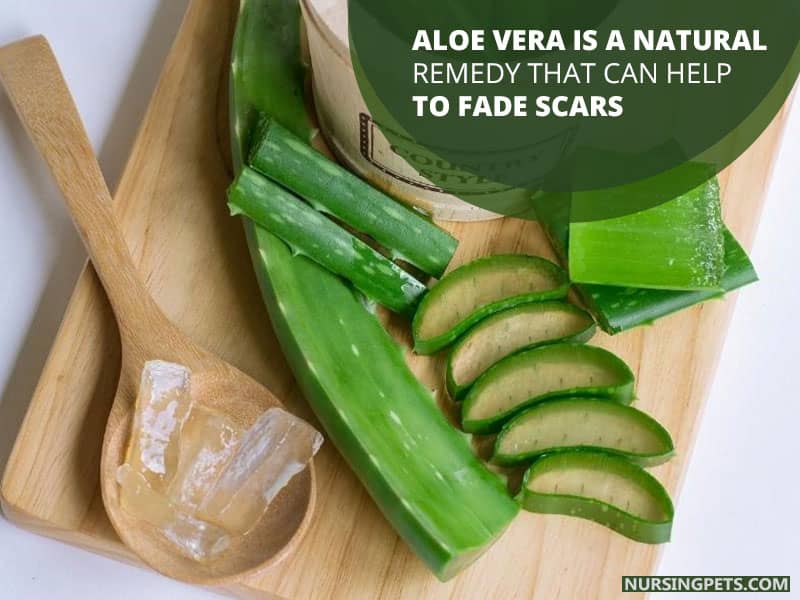
Exfoliate the area: Exfoliating the skin can help to fade scars by removing the top layer of skin. Be sure to use a gentle exfoliating agent and scrub the area gently.
Cover the area with makeup: If you want to cover up the scars while you’re waiting for them to fade, makeup can be a helpful option. Be sure to use a concealer that matches your skin tone and apply it over the scars.
No matter what method you choose, it will take time and patience to see results. But eventually, with some consistent treatment, you can help to get rid of those pesky cat scratch scars for good!
Cat Scratch Scars On My Hands, What To Do?
Cat scratches may not seem like a big deal at the time, but those scratches can sometimes lead to scars. If you’re looking for ways to get rid of those scars, here are a few things you can try.
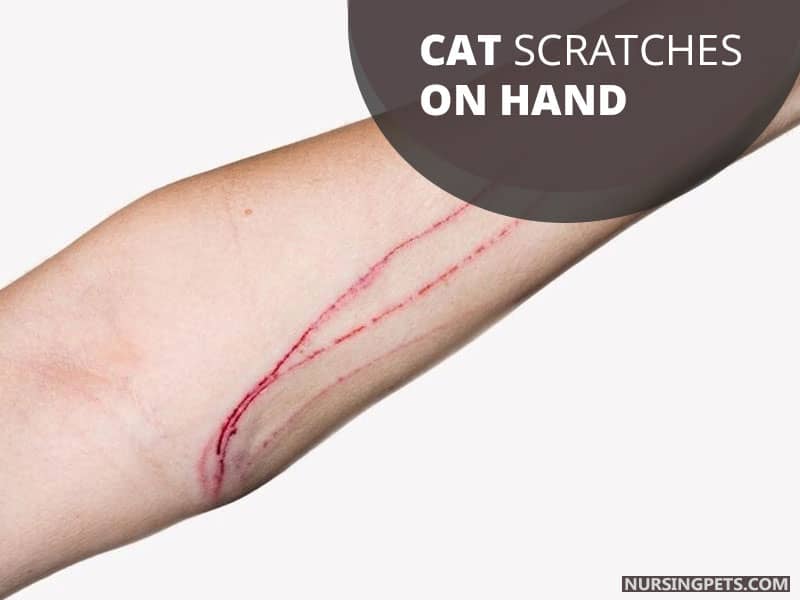
Use a scar healing cream: There are many scar healing creams on the market, so find one that suits your needs. Apply the cream to your scars twice a day, and you should see a difference in a few weeks.
Try a home remedy: Many home remedies can help reduce the appearance of scars. One popular remedy is to mix equal parts baking soda and water, apply it to the scars, and let it sit for 15 minutes before washing it off.
Use a topical retinoid: Retinoids are a class of drugs derived from vitamin A and can be very effective at reducing the appearance of scars. Talk to your doctor about whether a topical retinoid would be suitable for you.
Have laser treatment: Laser treatment can be used to reduce the appearance of scars, but it can be quite expensive. If you are considering this option, talk to your doctor about whether it is right for you.
Try microdermabrasion: Microdermabrasion is a type of exfoliation that can help to reduce the appearance of scars. It involves using a special device to sand the top layer of skin off, revealing the new, unscarred skin beneath.
Get a tattoo: If you have a scar that you don’t like, you could always cover it up with a tattoo. This is a permanent solution, so make sure you are 100% happy with your design before going ahead with it.
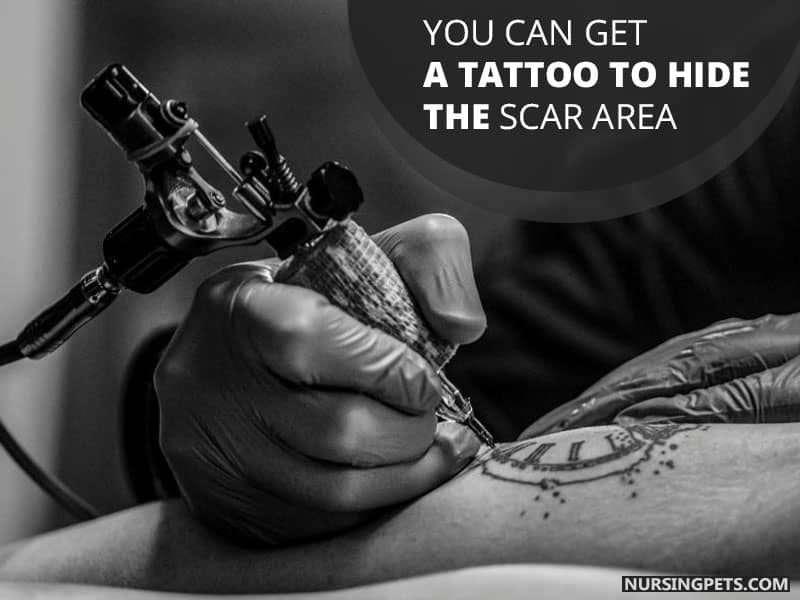
Embrace your scars: Finally, remember that your scars are a part of you, and they make you unique. Embrace them and be proud of them!
What Are Some Reasons Why My Cat Might Be Scratching Me?
There are many reasons why your cat may be scratching you. Maybe your cat is feeling anxious or stressed, has a medical condition, or is just plain old bored.
Here are some reasons why your cat might be scratching you:
Anxiety or stress
Cats can get anxious or stressed for various reasons, including changes in their routine, moving to a new home, or adding a new pet or baby to the family. When cats feel anxious, they may start to exhibit behaviors like excessive grooming, scratching, or meowing.
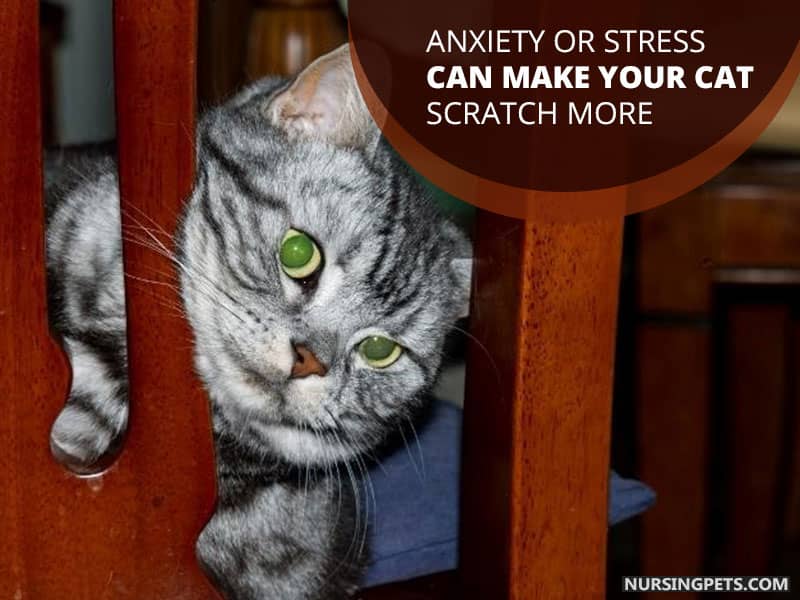
Medical condition
Whenever your cat is scratching you more than usual, it could be a sign of a medical condition, such as allergies, skin infections, or parasites. If your cat is scratching and seems to be in pain, it’s important to take them to the vet to rule out any medical causes.
Boredom
Cats can get bored just like people, and when they’re bored, they may start to exhibit destructive behaviors, like scratching furniture or attacking their human companions. In case your cat is scratching more than usual, try to provide them with more toys and stimulation, such as puzzle toys or a cat tree.
Attention-seeking behavior
In some cases, cats may start to scratch their humans as a way to get attention. This is often seen in cases where the cat isn’t getting enough attention from their human companions. In this case, try to spend more time playing with your cat and providing them with love and affection.

Fear or Aggression
Sometimes cats may start to scratch their human out of fear or aggression. This is often seen in cases where the cat feels threatened or scared. If you think this is the case, it’s important to consult with a professional to help you and your cat work through the issue.
Finally, your cat might be scratching you because they’re simply enjoying it. Scratching feels good for cats, and they may just be doing it because they enjoy the sensation.
If your cat is scratching you and doesn’t seem to be bothered by it, then this is likely the case.
How To Prevent Your Cat From Scratching You?
Some cats scratch as part of their natural grooming process; others do it out of excitement or as a way to express their frustration. Either way, it’s not a pleasant experience for you.
Here are a few tips to help prevent your cat from scratching you:
Nails Trimmed: Keep your cat’s nails trimmed. This will help reduce the amount of damage they can do if they do scratch you.
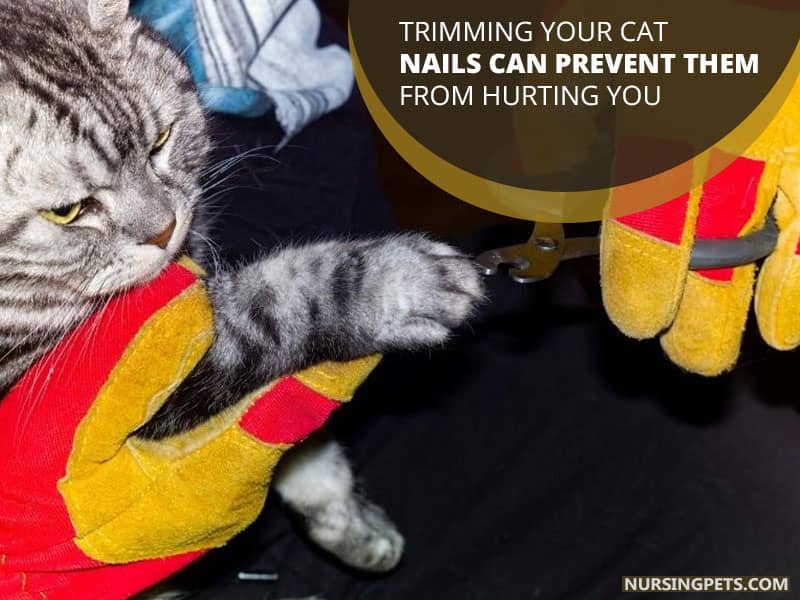
Provide Toys: Give your cat plenty of toys and scratch posts. This will give them an outlet for their scratching urges and help keep their nails from getting too long.
Do not hurt: Never punish your cat for scratching. This will only make them more frustrated and more likely to scratch you in the future.
Redirect attention: If your cat does scratch you, redirect their attention to a toy or scratch post. This will help them understand that scratching is not acceptable behavior.

In conclusion, cat scratches can be dangerous, but the risks are usually low. However, it’s important to be aware of the potential dangers and take steps to prevent being scratched in the first place.
Final Word
In most cases, scratches from a cat will heal on their own within a few days. However, by following those tips, you can help speed up the healing process and reduce your risk of infection.
If the wound is more than a few days old, or if it seems to be getting worse, it’s important to see a doctor. A deep scratch can lead to an infection, so it’s best to err on the side of caution and get it checked out.
Do you have any tips for avoiding cat scratches? Share them in the comments below!
Image Source:
- Canva.com
- iStockphoto.com

